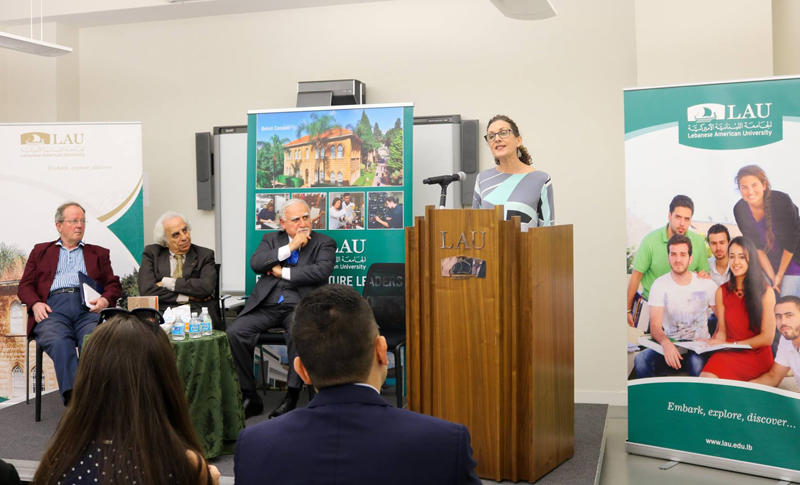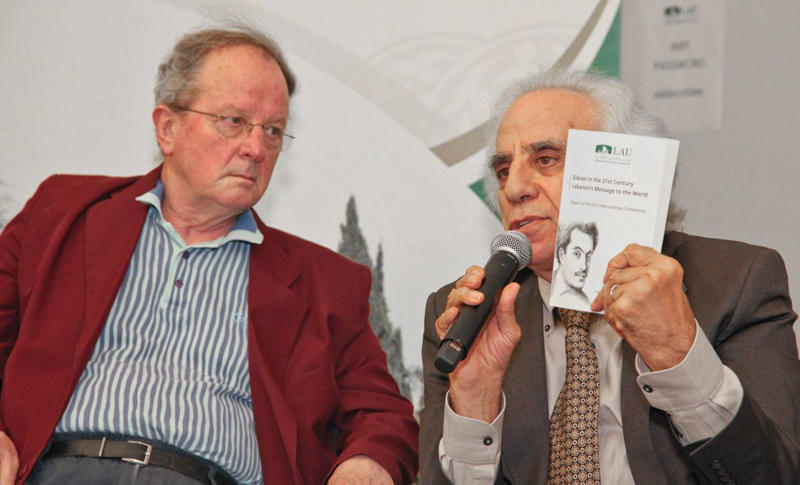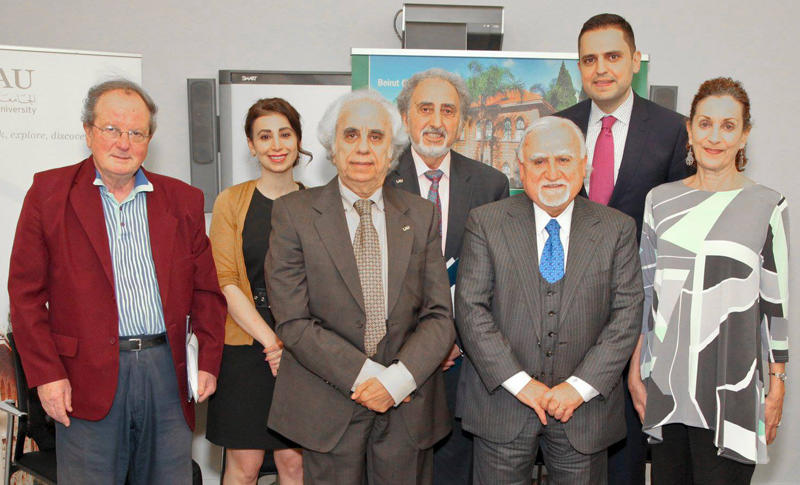Kahlil Gibran, a Century On
CLH and LAU NY celebrate the centennial of Gibran’s masterpiece, The Madman.
On May 24, LAU’s Center for Lebanese Heritage (CLH), in collaboration with the Lebanese Consulate General in New York, hosted a panel discussion on Kahlil Gibran at LAU’s NY Academic Center in Manhattan to celebrate the centennial commemoration of Gibran’s first English-language book, The Madman.
The event featured Henri Zoghaib, acclaimed Lebanese poet and CLH director; Dr. Philip Salem, president of the Salem Oncology Center; University of Pennsylvania Professor Emeritus Roger Allen; and Helen Samhan of the Arab American Institute and Arab American National Museum.
The evening was a condensed edition of the Third International Conference on Gibran titled Kahlil Gibran: Lebanon’s Message to the World, which took place in Beirut in January of this year. To date, the CLH and the Gibran Chair for Values and Peace at the University of Maryland have organized three international conferences on Gibran, the first two at the University of Maryland, as well as January’s event in Lebanon.
The LAU NY panel discussion was attended by Consul General of Lebanon in New York, Majdi Ramadan, as well as a number of researchers, academics and members of the local Lebanese community.
Edward Shiner, director of alumni and special projects at the NY Academic Center, acted as emcee and moderated the panel. Shiner welcomed the participants, stating that the event was a definitive example of LAU NY’s mission to bridge the New York City community and Lebanon, since “our esteemed Gibran is the epitome of the intellectual melding of these two cultures.”
Zoghaib delivered the opening remarks, focusing on the continuation of the university’s mission to revive Lebanese heritage at home and abroad.
Dr. Salem centered his keynote speech on the universality of Gibran’s message of love, encouraging the audience by stating, “Hatred makes you smaller, love makes you bigger.”
Samhan read out a presentation by May Rihani, director of the Gibran Chair for Values and Peace at the University of Maryland. The piece touched on the primary influences of Gibran’s literature, namely women who played a crucial role in shaping him as a man, writer and artist. Professor Allen concluded the evening with a presentation called Khalil Gibran and the Beginnings of the Arabic Short Story.
Gibran’s legacy is as relevant today as it has ever been, the speakers agreed, touching the hearts and minds of many generations across political, religious and national boundaries. Ideas such as his withstand the test of time, resonating in particular during periods of strife and conflict. As Zoghaib stated, “The intellectual resistance is much more resilient than the military resistance.”


